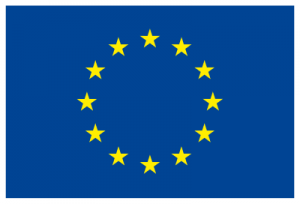Report examining strategies and approaches for deepening audience engagement with digitally mediated cultural heritage, by means of case studies, interviews, and a survey of the literature and Galleries, Libraries, Archives and Museums (GLAM) institutional documentation.
Read More →
This project has received funding from the European Union’s Seventh Framework Programme for research, technological development and demonstration under grant agreement n° 612789.
Participation
European Policy Brief. The Cultural Heritage Institution: Transformation and Change in a Digital Age
This policy brief is concerned with CH institutions in a time of dynamic cultural, social and technological change. Specifically, it considers the multi-faceted impact of DT and the recalibration of the relationship between institutional CH practices and the individual. It advocates that innovation through research and new technologies are essential for bringing the CH of Europe closer to people, the importance of the CH sector to European growth and the recognition of DT as a driver of change in the CH institution.
Read More →RICHES Think Paper 06. Museum education with digital technologies: participation and lifelong learning
Education and learning have been a high priority task for museums. Whether informal and unintentional or structured in educational programmes for different kinds of audiences, museum learning focuses on the learner. Rather than knowledge transmission, it builds upon knowledge construction and an active engagement in personal, social and physical contexts. More than knowledge acquisition, learning in museums is engaging and gives a sense of wellbeing.
Read More →Berlin Charter on citizen engagement in cultural heritage and humanities research in the digital age
Document containing a set of principles for encouraging and supporting citizens’ engagement in cultural heritage and humanities research in the digital age. The Charter is open to be adopted by all interested parties, namely private organisations, public institutions, artists, professionals, researchers and interested citizens.
Read More →Namur Declaration. CH in the 21th century for living better together. Towards a common strategy for Europe.
On 24 April European ministers responsible for cultural heritage have adopted guidelines for a European heritage strategy at their 6th conference entitled “Cultural heritage in the 21st century for living better together. Towards a common strategy for Europe.” The conference was organised in Namur in the framework of the Belgian Chairmanship of the Committee of Ministers of the Council of Europe.
Read More →Public Hearing. An integrated approach to cultural heritage in Europe: State of play and perspectives
The European Parliament’s Committee on Culture and Education held a public hearing on 2 December 2014 in Brussels. The hearing focused on the current state of play, the challenges faced and the steps to be taken in order to tap into the potential of cultural heritage for social progress and sustainable economic development.
Read More →Council conclusions on participatory governance of cultural heritage
At its meeting in Brussels on 25 November 2014, the Council of the European Union, under the leadership of the Italian Presidency, adopted Conclusions on participatory governance of cultural heritage, inviting Member States to promote a more active involvement of civil society and of the private sector in the governance of cultural heritage, at local, regional, national and European levels.
Read More →